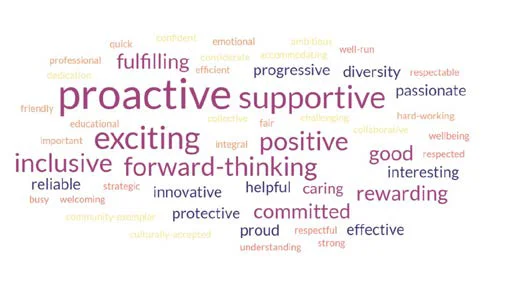How you’ve shaped our plan
We have developed this CRMP in consultation with community groups, partners and colleagues. The draft plan was presented for public consultation during October and November 2024, through a process aligned to the principles and expectations of our Consultation Framework.
We sought feedback from the public through an online survey, focus groups, community events and direct engagement. The consultation was promoted through social media, Notts TV, leaflet distribution and direct engagement with community groups and members of the public. We took positive action to reach out to under-represented groups to ensure that the voices of minoritised communities were heard, hosting a total of six focus groups involving almost 80 people. We also wrote to over 180 external stakeholder bodies, including neighbouring fire and rescue services, blue light partners, all tiers of Local Authorities, diversity, disability and community groups, and other public sector bodies. A peer review by two other fire services provided assurance on the plan’s quality, in relation to compliance with statutory requirements and fire standards, and sector best practice.
Overall, we received 645 responses to our survey, of which 453 came from members of the public, 157 from staff and 35 from partners.
Analysis of the responses show that we successfully engaged a broad cross section of people, largely reflecting the makeup of the population in terms of gender, sexual orientation, religions and beliefs and those living with disability. We saw a significant increase in engagement, compared to previous consultations, particularly from young people (under 35 years), older people (over 64 years) and those from non-white backgrounds.
The main outcomes of the consultation are presented here, with further detail available in the full consultation report on our website.
We are always keen to hear from members of the public. You can contact us through any of the ways listed on the back cover, to provide feedback or register an interest in getting involved in future consultation and engagement events.
Key findings
- 95.6% of respondents agreed that our strategic goals focus on the right areas.
- 91% agreed that we have accurately identified and prioritised risks.
- 81% of respondents agreed that the CRMP was accessible to everyone in their community and easy to understand.
- 73% of respondents indicated a preference for the web-based version, with 27% preferring the print format. We will continue to offer both versions.
On our service delivery plans
- 91% of respondents agreed that our plans will help communities stay safe from fires and other emergencies.
- 91% of respondents agreed that our approach to enforcing fire and building safety regulations was appropriate.
- 94% of respondents expressed confidence in our emergency response to incidents
Many people expressed views about the importance of our work to prevent fires and educate people, especially young people.
“I feel confident that NFRS is committed to keeping our community safe from fires and other emergencies. Their focus on prevention, education, and community engagement is key”.
(focus group attendee)
“Focus on more education in schools/colleges across the ages, given the risks of poor quality batteries which power many electrical devices”.
(survey respondent)
The development of a youth engagement programme is one of our objectives during the term of this CRMP.
On our people and culture
“NFRS seems to genuinely want to be more inclusive & diverse”.
(focus group attendee)
The focus groups were asked what sort of organisation NFRS was striving to be. The word cloud below captures their responses.

On our improvement plans
We asked what areas we should target to improve our effectiveness and efficiency.
The most popular themes were:
- Community engagement and communications
- Resourcing and finances
- Staff wellbeing
- Use of digital systems and data
Some people expressed concern about our ability to deliver improvements with the resources available to us.
83% of focus group attendees and 77% of survey respondents said it would be reasonable or very reasonable to ask residents to pay an increase of up to £5 on the council tax to support funding for the fire service.
“ I agree that you should maintain and improve but with a decreasing budget not sure it can be achieved
(survey respondent)